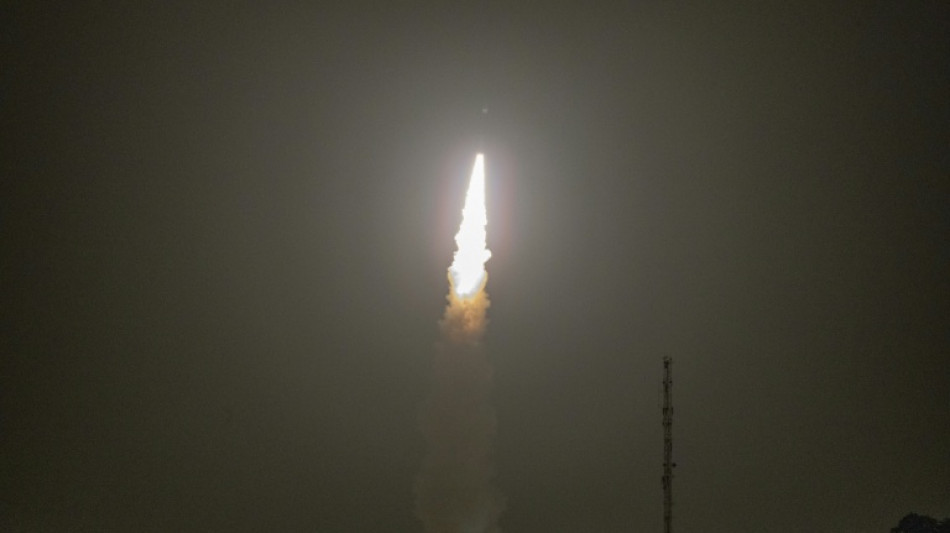
-
 Australian state bans testing of illicit drugs
Australian state bans testing of illicit drugs
-
Philippines 'ghost' flood projects leave residents stranded
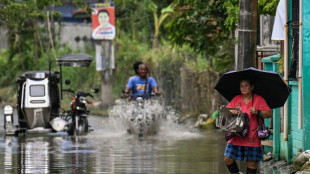
-
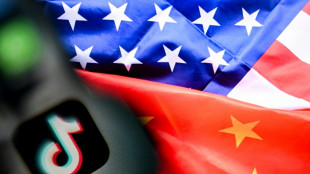 Asian markets fluctuate as focus turns to Trump-Xi, BoJ
Asian markets fluctuate as focus turns to Trump-Xi, BoJ
-
North Korea's Kim oversees drone test, orders AI development
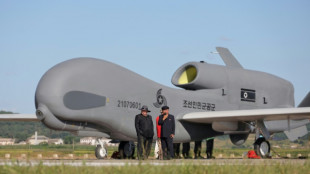
-
 Kenya eye double gold on penultimate day of world championships
Kenya eye double gold on penultimate day of world championships
-
Canada, Mexico leaders agree to seek 'fairer' trade deal with US
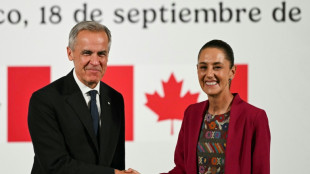
-
 How did an Indian zoo get the world's most endangered great ape?
How did an Indian zoo get the world's most endangered great ape?
-
Amid emotional retirement reveal, Kershaw focused on beating Giants

-
 Dodgers pitching icon Kershaw to retire after 18th MLB season
Dodgers pitching icon Kershaw to retire after 18th MLB season
-
Netflix seeks 'Money Heist' successor in Spanish hub
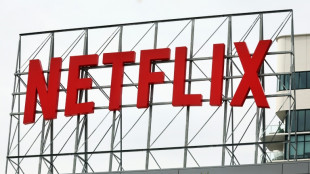
-
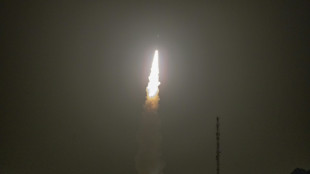 Taiwan running out of time for satellite communications, space chief tells AFP
Taiwan running out of time for satellite communications, space chief tells AFP
-
Gaza, Palestinian future to dominate UN gathering
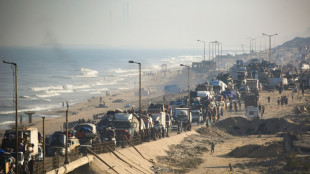
-
 Young plaintiffs stand tall after taking on Trump climate agenda in court
Young plaintiffs stand tall after taking on Trump climate agenda in court
-
Kirk killing sparks fierce US free speech debate
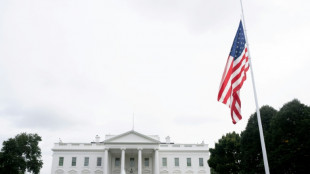
-
 Eying bottom line, US media giants bow to Trump
Eying bottom line, US media giants bow to Trump
-
Indie studio bets on new game after buying freedom from Sega
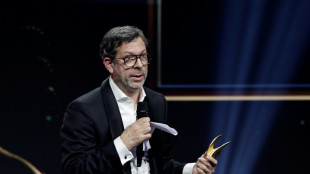
-
 Marseille hoping to catch PSG at the right time in Ligue 1
Marseille hoping to catch PSG at the right time in Ligue 1
-
Japan inflation slows in August, rice price surges ease

-
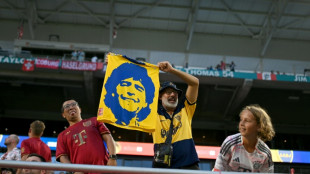 Court seizes assets of Maradona's lawyer, sisters in fraud case
Court seizes assets of Maradona's lawyer, sisters in fraud case
-
RFK Jr panelists make initial changes to childhood vaccine schedule
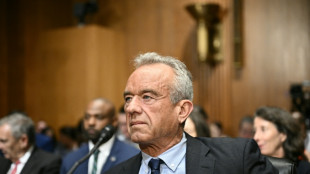
-
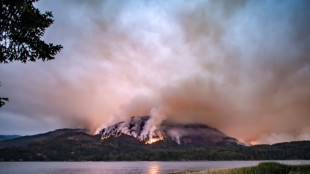 Progress stalled on Canada's pollution reduction goal
Progress stalled on Canada's pollution reduction goal
-
UN Security Council votes on reimposing Iran nuclear sanctions
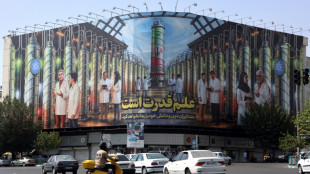
-
 Depleted France eager to 'throw sand in England's machine' in World Cup semi-final
Depleted France eager to 'throw sand in England's machine' in World Cup semi-final
-
Barcelona beat Newcastle, Man City see off Napoli in Champions League

-
 Texans' Ward won't face domestic violence charges
Texans' Ward won't face domestic violence charges
-
Alcaraz headlines Team Europe in Laver Cup title defense

-
 Rashford bags first Barca goals to seal win at Newcastle
Rashford bags first Barca goals to seal win at Newcastle
-
Haaland hits 50 Champions League goals in Man City cruise over 10-man Napoli

-
 Dodgers pitching icon Kershaw to retire - club
Dodgers pitching icon Kershaw to retire - club
-
Eagles seek answers against Rams in battle of NFL unbeatens

-
 Afghanistan crash out of Asia Cup after six-wicket loss to Sri Lanka
Afghanistan crash out of Asia Cup after six-wicket loss to Sri Lanka
-
US regulator sues Ticketmaster over 'illegal' ticket schemes

-
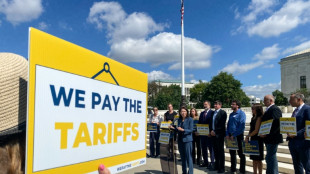 US small businesses slam Trump tariffs as legal fight proceeds
US small businesses slam Trump tariffs as legal fight proceeds
-
All smiles as Melania and Kate meet kids in first public event

-
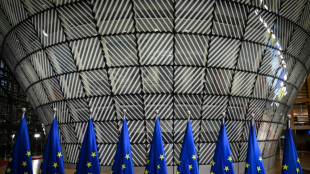 EU states agree 'face-saving' broad UN emissions-cutting target
EU states agree 'face-saving' broad UN emissions-cutting target
-
Madonna to release new album next year

-
 Colombian court issues first sentences for ex-soldiers over civilian killings
Colombian court issues first sentences for ex-soldiers over civilian killings
-
Chip-maker Nvidia takes stake in rival Intel
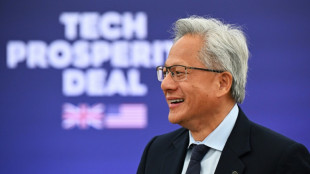
-
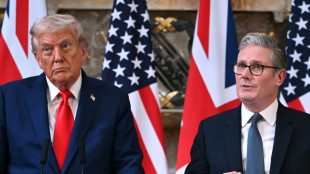 Putin has let me down, says Trump at end of UK state visit
Putin has let me down, says Trump at end of UK state visit
-
Melania's hat, Epstein's ghost: takeaways from Trump's UK visit

-
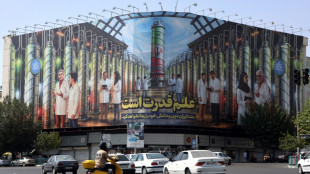 UN Security Council to vote on Iran nuclear sanctions Friday
UN Security Council to vote on Iran nuclear sanctions Friday
-
AI-backed robot painting aims to boost artist income

-
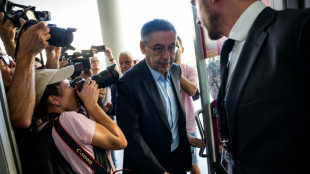 Former Barca presidents deny corruption at ref scandal court appearance
Former Barca presidents deny corruption at ref scandal court appearance
-
Canada, Mexico leaders meet amid US tariff war
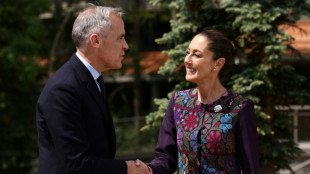
-
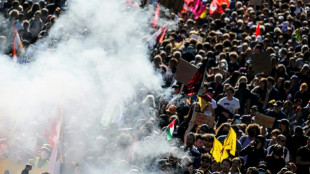 Mass rallies, disruptions in France on day of anger against Macron
Mass rallies, disruptions in France on day of anger against Macron
-
Piastri says team orders clarified at McLaren

-
 'Box office' McLaughlin-Levrone -- rarely seen but worth the wait
'Box office' McLaughlin-Levrone -- rarely seen but worth the wait
-
Stocks rise on Nvidia-Intel deal, Fed rate cut

-
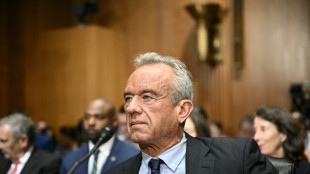 US medical panel insists it's 'pro-vaccine'
US medical panel insists it's 'pro-vaccine'
-
Trump says Putin has 'let me down' as UK state visit ends
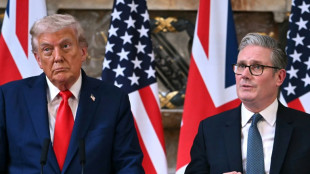

Taiwan running out of time for satellite communications, space chief tells AFP
Taiwan's space chief Wu Jong-shinn says the "clock is ticking" for the democratic island to launch its own satellites to secure internet and phone services during a potential conflict with China.
The island faces the constant threat of an invasion by Beijing, which claims the island is part of its territory and in recent years has intensified military pressure.
Taiwan needs 150 of its own low Earth orbit (LEO) satellites for "basic communication resilience" in case the subsea telecoms cables connecting the island with the rest of the world are damaged or cut, Wu told AFP in an interview.
It currently has none.
"We need to build up our own technology. But as you know... the clock is ticking," said Wu, director general of Taiwan Space Agency.
"We need to speed up."
Taiwanese authorities have already seen what happens when subsea cables are disconnected.
In February 2023, two telecoms lines serving Taiwan's outlying Matsu archipelago were severed, disrupting communications for weeks.
Taiwan plans to launch the first of six LEO satellites 600 kilometres (373 miles) above the planet in 2027 as part of its Beyond 5G LEO Satellite programme.
US officials have previously cited 2027 as a possible timeline for a Chinese invasion of Taiwan.
In the meantime, Taiwan's Chunghwa Telecom is striking deals with satellite companies around the world to provide back-up telecommunications for the island in case of a war or natural disaster.
Starlink dominates the satellite communications sector, with 8,000 satellites lofted into orbit by Elon Musk's comparatively cheap, reusable SpaceX rockets.
But Musk's business ties with China and his previous comments that Taiwan should become part of China have angered the island.
Taiwan instead has signed a multi-million dollar deal with European company Eutelsat, the world's second-largest operator of LEO satellites.
Eutelsat has more than 600 satellites, following its 2023 merger with British firm OneWeb.
"We're developing our own technology, but it takes a while, but we can leverage the commercial resources to get us to have this communication resilience," Wu said.
But Wu said Eutelsat's satellites were not enough and other providers were needed.
Taiwan has also partnered with US company Astranis and SES of Luxembourg, and is in talks with Amazon's Kuiper and Canada's Telesat.
Eutelsat's satellite system was reportedly used in a Taiwan disaster for the first time in 2024 when a deadly 7.4-magnitude earthquake struck the east coast and knocked out communications.
- 'We can't rely on one side' -
Taiwan is light years behind the the US and Chinese space programmes.
The rival superpowers have ploughed billions of dollars sending people into orbit and launching thousands of satellites.
Taiwan currently has seven meteorological satellites and one optical remote sensing satellite in orbit, and hopes to have "more than 20" by around 2031, Wu said.
It plans to launch a second optical remote sensing satellite in November from the Vandenberg Space Force Base in California on a SpaceX rocket.
Wu said Taiwan would have its own rockets and launch site in the next decade.
When it comes to communication satellites, however, some question the economic sense of countries developing their own networks when commercial options are available.
"If you want this to work, you need a large number of them in low Earth orbit for that continuous coverage," Brad Tucker, an astrophysicist and cosmologist at the Australian National University, told AFP.
"You have to be committed to this long-term operation but also then you need to maintain it. Starlink works because they are de-orbiting their satellites every three years, putting up a new one."
But Taiwanese expert Cathy Fang said it would be "dangerous" for Taiwan to rely only on foreign satellite operators for phone and internet signal during a war.
Taiwan has learned lessons from Ukraine where Starlink has been a vital communications tool for Ukrainian forces fighting Moscow's troops.
Musk has admitted blocking a Ukraine attack on Russian warships by turning off internet access to the system.
"We can't just rely on one side," Fang, a policy analyst at the government-backed Research Institute for Democracy, Society and Emerging Technology, told AFP.
"We need to cultivate our industry."
T.Germann--VB
